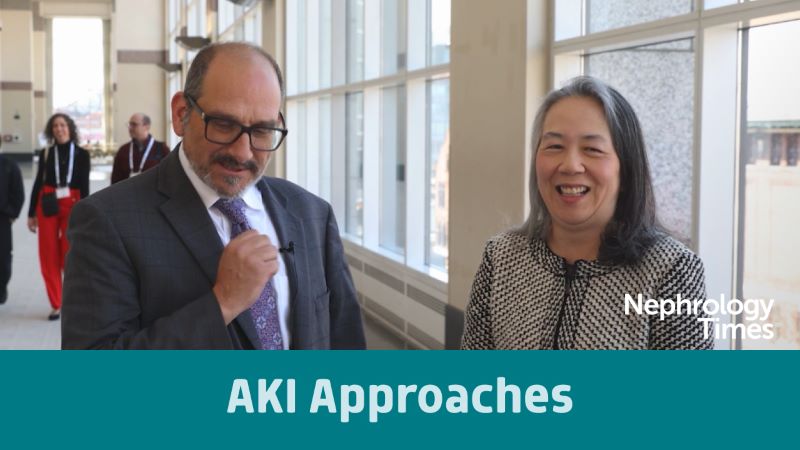Dr. Frank Trudo, AstraZeneca, Talks Effective Treatment for Patients with Severe Asthma
By Rob Dillard - Last Updated: April 28, 2023DocWire News recently spoke with Frank Trudo, MD, Vice President, US Medical, Respiratory and Immunology at AstraZeneca to discuss the results from a new integrated analysis including data from the MELTEMI Phase III open-label extension trial which showed that FASENRA® (benralizumab) was well-tolerated for up to five years, with a long-term safety profile consistent with previous Phase III trials in adult patients with severe asthma.
DocWire News: Can you discuss the MELTEMI study?
Dr. Frank Trudo: Sure. The MELTEMI study was designed to assess safety and tolerability of benralizumab, or Fasenra, in adults with severe asthma. Now, Fasenra is indicated as an add-on maintenance treatment of patients with severe asthma, age 12 and older, and with an eosinophilic phenotype. Fasenra is not indicated for the treatment of other eosinophilic conditions and is not indicated for the relief of acute bronchospasm or status asthmaticus. The MELTEMI study was an open label safety extension phase three study to assess safety and tolerability of Fasenra administered subcutaneously in patients with severe uncontrolled asthma on ICS and LABA, with or without chronic oral corticosteroids and/or other controllers.
Participants were adults who completed one of three phase three placebo-controlled trials, and then were enrolled in a double blind BORA safety extension trial. Study participants were required to complete at least 16 weeks and not more than 40 weeks in the BORA study to be able to participate in MELTEMI. The integrated analysis includes results from patients who received Fasenra for up to five years from the beginning of the predecessor trials. In total, 446 patients were included in the analysis with 86% completing the on treatment period. The mean treatment duration was greater than or equal to three years in each group.
The key results show that the integrated analysis for MELTEMI showed that Fasenra was well tolerated with a long-term safety profile consistent with the previous phase three trials in adult patients with severe eosinophilic asthma with no new safety signals identified. In a secondary endpoint, adult patients with a baseline blood eosinophil count greater than or equal to 300 cells per microliter and on high-dose ICS, receiving Fasenra every eight weeks had a low and sustained reduction in annualized asthma exacerbation rates, and at least 75% of these patients in this treatment group, having zero exacerbations each year while in the safety extension period.
Now, as with any study limitations should be pointed out. For MELTEMI, this was an open label design so all patients knew they were taking Fasenra. There is potential for selection bias since patients were receiving for Fasenra in the predecessor BORA study. In addition, not all patients were followed for the entire five-year period.
Did any of the results surprise you?
The results, again, showed that Fasenra was well tolerated with a long-term safety profile consistent with the previous phase three studies in adult patients with severe eosinophilic asthma.
What are the clinical implications of these findings as it relates to asthma patients?
Healthcare providers often seek to understand the long-term safety findings for any treatment. The safety data from the integrated analysis from MELTEMI showed that Fasenra was well tolerated for up to five years with a long-term safety profile consistent with previous phase three trials in adult patients with severe asthma. We are pleased to share these results, which demonstrate our commitment to providing additional safety data for up to five years for Fasenra in adults with severe eosinophilic asthma.
Closing thoughts?
Again, the data show that the long-term safety profile in adults is consistent with previous phase three trials, and that these patients experience a low rate of exacerbations with at least 75% of patients with baseline blood eosinophil counts greater than or equal to 300 cells per microliter, and on high dose ICS in the Fasenra Q8 treatment arm have zero exacerbations in each year of follow-up.







 © 2025 Mashup Media, LLC, a Formedics Property. All Rights Reserved.
© 2025 Mashup Media, LLC, a Formedics Property. All Rights Reserved.